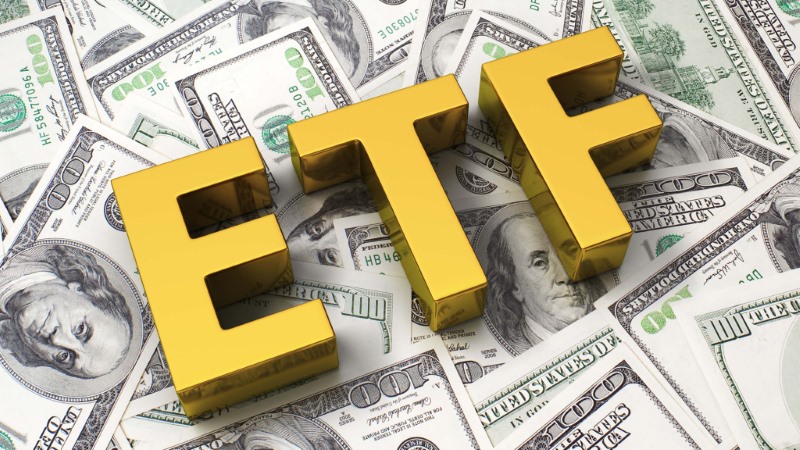Preferred stock is a special type of stock, bringing outstanding benefits to investors. Join HVA to discover the characteristics and operation of this type of stock.
Things to know about preferred stocks:
What is preferred stock?
Preferred stock is a special type of stock issued by companies that gives investors preferential rights over common stock. These rights may include a fixed dividend, priority in receiving payments when the company distributes profits or liquidates assets, and sometimes, higher voting rights at shareholder meetings.
Share Preferred stocks focus more on ensuring stable financial benefits to investors while common stocks provide shareholders with partial ownership of the business and voting rights in important decisions.

Preferred stock does not carry voting rights in many cases or has only limited voting rights, but in return, the investor receive dividends at a fixed rate, regardless of the company's business results.
The Importance of Preferred Stocks in Investing
Preferred stocks are considered a safe and stable investment tool, especially suitable for investors who want fixed income and low risk. Therefore, understanding this type of stock will help investors make decisions. Which stocks should I buy? and have another useful option to diversify your portfolio.
Characteristics of preferred stock
- One of the most prominent features of preferred stocks is stable dividends. Investors in preferred stocks will receive a fixed dividend, which the company commits to pay regularly, regardless of annual profits. This helps investors have a more stable and secure source of income than common stocks.
- Preferred shareholders have priority in receiving payments before common shareholders in the event of a company distributing profits or being liquidated. This means that in the event of a company experiencing financial difficulties, preferred shareholders are better protected, ensuring that they receive a portion of the capital or dividends first.
- Despite their financial advantages, preferred stock often comes with limited voting rights. This means that preferred shareholders do not have a big say in major company decisions unless they own voting preferred stock. This is an important factor for investors to consider when choosing this type of stock.
- Some preferred stocks have the ability to return the investor's capital when the company repurchases the shares within a certain period of time. This provides financial security to the investor, especially in times of market volatility or when the company is in trouble.
Current types of preferred stocks:
>>>See more articles: Which stocks should new stock investors buy?
- Dividend preference shares
Preferred shares are shares that give the holder a fixed dividend, usually regardless of the company’s performance. This means that even if the company fails to achieve its desired profit, preferred shareholders will still receive the previously promised dividend. This is an ideal choice for those looking for stability and low risk in investing.

Job Preferred stock dividend calculator is a way of determining the amount of dividend that shareholders will receive from owning this dividend preferred stock, based on the dividend rate and the par value of the stock.
An example of a preferred stock dividend is as follows: Suppose a company issues preferred stock with a dividend rate of 6% on a par value of VND 1,000,000. The amount of dividend that shareholders receive each year will be:
Preferred stock dividend = 6% x 1,000,000 VND = 60,000 VND/share
In this case, dividend preference shares are the type of shares that the company uses to commit to paying dividends 6%, and calculating preferred stock dividends is the way to calculate the specific amount that shareholders receive.
Thus, preferred stock dividends are the subject of the preferred stock dividend calculation process, and this calculation helps shareholders know clearly how much dividend they will receive from investing in this type of stock.
Redeemable Preferred Stock:
Redeemable preference shares are shares that a company can buy back from its shareholders within a certain period of time or under pre-agreed conditions. Investors in redeemable preference shares usually have the right to get their initial investment back when the company buys back the shares, which is a financial guarantee for the investor.
Advantages and disadvantages of investing in redeemable preferred stocks
- Advantages: Protect initial investment, minimize risk.
- Disadvantages: Yields are usually lower than types of preferred stock other.
Voting preference shares
Voting preferred shares give their holders higher voting rights than common shares in important company decisions. This means that holders of voting preferred shares can have greater influence at shareholder meetings, especially when it comes to strategic decisions of the company.
Voting preferred stock is often used to protect the control of founders or major shareholders from other investors.
Instructions on how to buy preferred shares:
Many people are planning to invest in preferred stocks but wonder how to buy preferred stocks. Below is the sequence of steps to buy preferred stocks that those who are planning to invest in this type of stock must remember.

1. Research and select preferred stocks
- Learn about companies that issue preferred stock: Look at companies that issue preferred stock and research the company's financial health, dividend history, and growth prospects.
- Choose the type of stock that suits your investment goals: There are many types of preferred shares such as dividend preferred shares, redeemable preferred shares, and voting preferred shares.
- Check the terms of the preferred stock: Read carefully the terms relating to dividends, voting rights, payment priority and return of capital.
2. Open a securities account
- Choose a reputable stock brokerage firm: To buy preferred stocks, you need to open a brokerage account with a reputable brokerage firm. Compare firms on their trading fees, support services, and the analytical tools they offer.
- Complete account opening procedure: Provide necessary documents such as ID card or citizen identification card, and follow the registration steps as required by the brokerage company.
- Deposit money into securities account: Transfer an appropriate amount of money into your securities account to prepare to buy stocks.
3. Place an order to buy preferred shares
- Find Preferred Stock Code of the company you want to invest in. This code is usually provided by the exchange or brokerage firm.
- Place a buy order: Through your brokerage's trading platform, you can place an order to buy preferred shares. Choose the number of shares you want to buy and the price you are willing to pay.
- Order tracking: After placing an order, you need to monitor the order execution process. If your order is executed, the shares will be credited to your account.
4. Investment management and tracking
- Track stock prices: Although preferred stocks provide stable returns, you should still monitor price fluctuations to have an appropriate buying or selling strategy.
- Receive dividends: Preferred stock dividends are usually paid periodically. Check your brokerage account to make sure the dividends are deposited on time.
- Review your portfolio: Regularly evaluate the performance of preferred stocks in your portfolio to adjust your investment strategy if necessary.
Some important notes to remember when buying preferred stock
- Preferred stocks can be less liquid than common stocks, so you should consider carefully before investing.
- Always calculate transaction costs when buying or selling stocks to ensure your profits are not cut into by fees.
- While preferred stock has many advantages, there are risks, especially when a company is in financial trouble. Careful evaluation before investing is important.
The above steps will help you buy preferred shares easily and efficiently. Make sure you stay informed and closely monitor your investment through the platform. hva.vn to achieve financial goals. HVA Hopefully, with the brief information summarized in this article, those who are looking to invest in stocks are learning about this type of investment. Preferred stock Have you understood what is preferred stock? The general characteristics of this type of stock in the financial market as well as clearly understood how to buy preferred stock if you decide to invest in it. Hopefully, every investment decision you are cherishing will be successful, bringing the best profits in the future.











